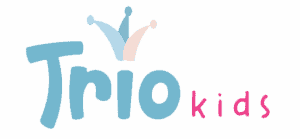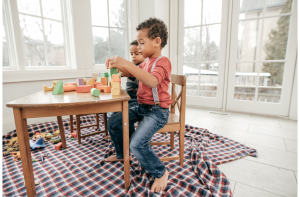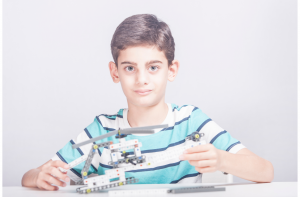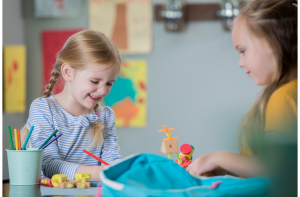- Copyright © 2024 - Trio Kids Singapore. All Rights Reserved. Designed by Digital Marketing Agency- WeProms
How Puzzles Can Help Grow Your Child’s Brain?
Puzzles are a great way to develop problem-solving skills in children. They come in different difficulty levels. If you are buying a puzzle for your child, you can buy it with the easiest difficulty level. Puzzle encourages children to use their brains so that they can solve the puzzle.
When your children engage with puzzles regularly or as a hobby, it leaves a massive effect on their minds. It builds hand-eye coordination and develops problem-solving skills in the children. There are some other benefits of playing with puzzles which we will discuss in this article. We will further learn how puzzles can help grow your children’s brain.
Better Coordination between hands and senses
When children play with puzzles, both their hands and eyes work together to solve the puzzle. It helps to develop eye-hand coordination in children. This coordination is very crucial for children. This coordination helps children to develop writing skills. It comes in handy when they master it.
The puzzle also builds coordination between your mind and hands. The mind thinks of a way to solve puzzles and the hands do the job. Meanwhile, children will be able to identify different shapes and colours that help you to solve the puzzle. This is how puzzles help to build coordination between the hand and different senses.
Basics Math Learning
Puzzles come in different shapes and patterns. When children play with puzzles, they get to know about different shapes. As shapes are fundamentals of a branch of mathematics that is geometry.
When these children learn mathematics, they do not face much difficulty. Because they are already familiar with the basics of maths. Besides, children also get to learn about colours and patterns. It helps them further in their studies and life.
It has been noticed that students who are good in co-curricular activities do also well in their studies. But it is important to maintain the balance between the two. Children should be more inclined towards studies.
Enhance the speed of completion in Problem Solving
As we mentioned above, puzzles are a great way to develop problem-solving skills in children. Children try to solve the puzzle using all the resources. They keep trying different resources until they find the right one that solves the puzzle. They think hard and try to solve the puzzle by comparing sizes, colours, and shapes.
Not only do they learn about colour and shapes, but they also learn problem-solving. Problem-solving skills help children throughout their whole life. If they get into an unwanted situation, they will allow their mind to think of a solution out of the box.
The same goes for their studies if they’re given a maths problem to solve. They would know what actions should be taken in a situation. By implementing those actions, they can solve any problem.
It can also help children with their profession. For instance, they may be good programmers in the future because programming requires you to be a good problem solver.
Being able to be quick witted
Puzzles of any difficulty level give children a hard time. They will struggle, but when they do it frequently, it becomes easier to solve it. Children learn problem-solving while solving puzzles. Puzzles make them think what the solution to this problem could be. This curiosity leads children to try different solutions and find out what solution works for them.
Trying and solving different puzzles frequently makes children quick-witted. Since they have solved different puzzles, they know how to assess the conditions and what steps to take. This also helps them in their studies. For instance, if they are solving a quiz about IQ, their wits will help them to solve the problems instantaneously with problem solving skills and quick wit, children can be expected to go a long way.
Children indulge so much in this healthy activity, that they become unaware of what happens around them. If your child does the same, it means that he is enjoying it. It is a good sign if children show interest in puzzles. As you have read it is a healthy activity and every parent should introduce puzzles to their kids earlier.
Recent posts
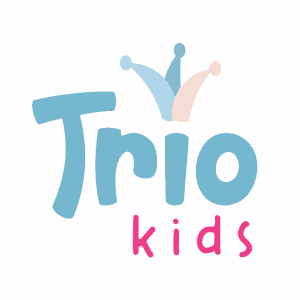
Trio Kids stems from our love of our 3 children. As a reminder to ourselves to prioritise them before anything else, we thought it would be best suited to name our brand after them.
